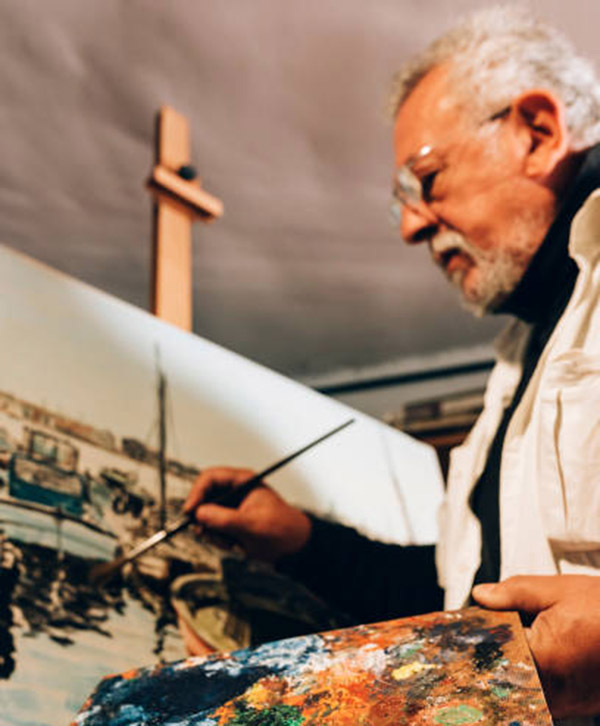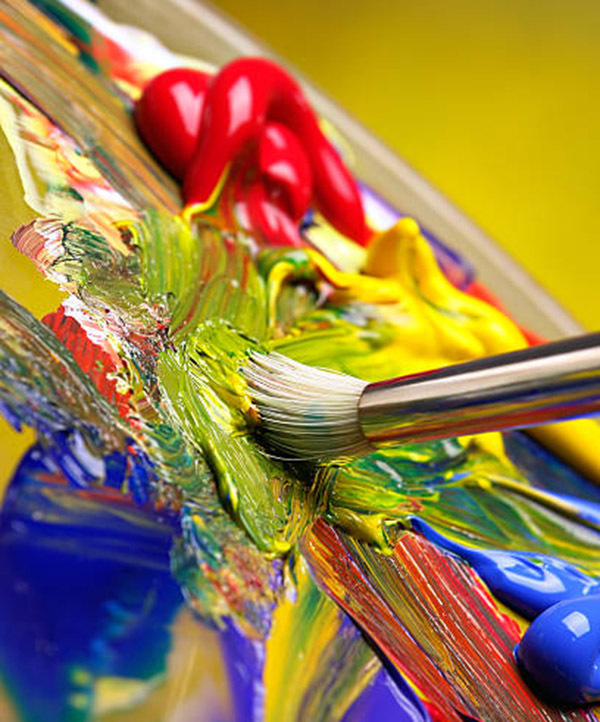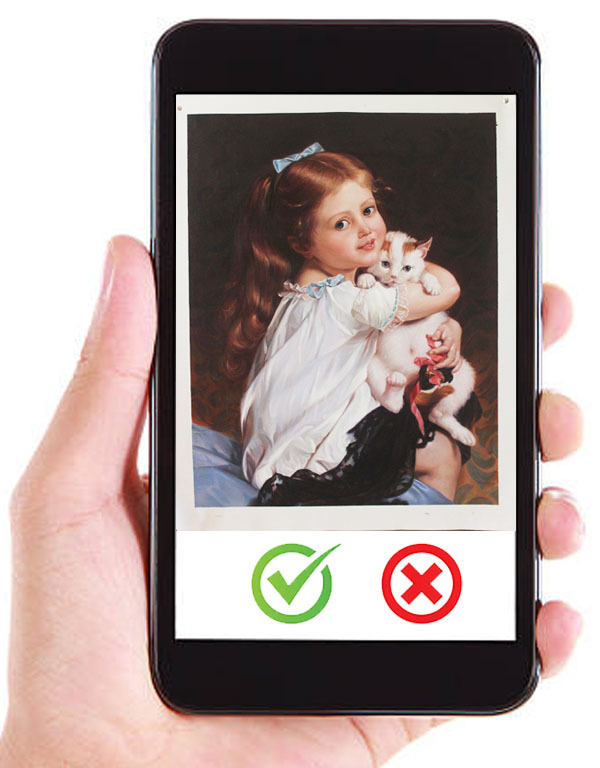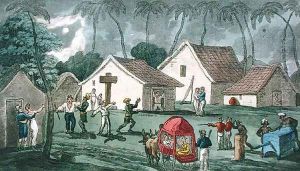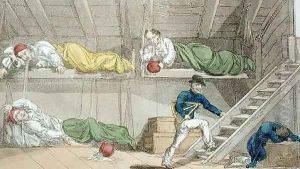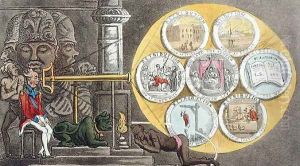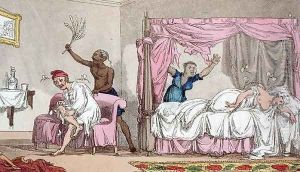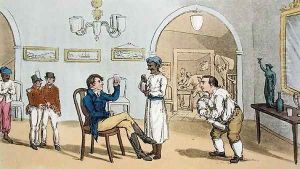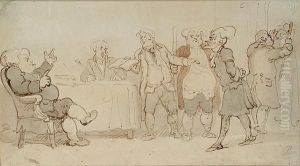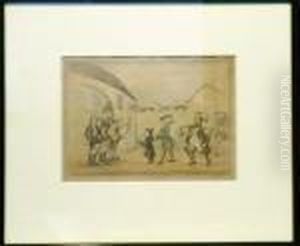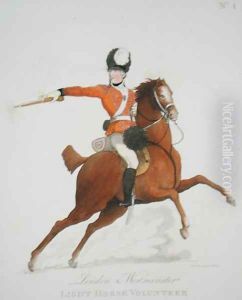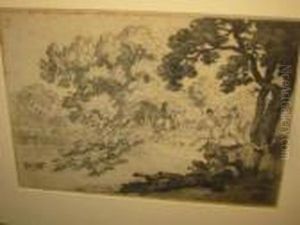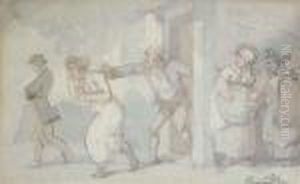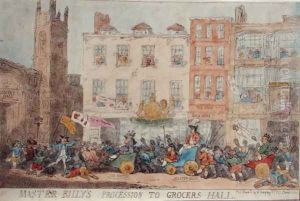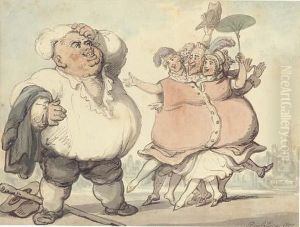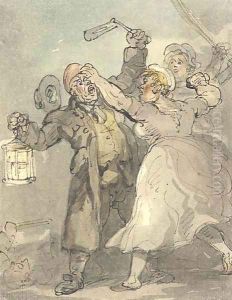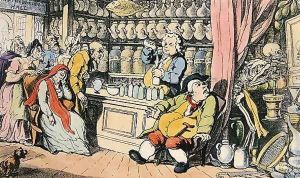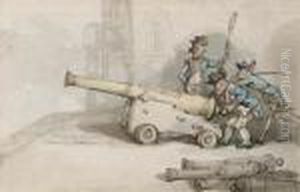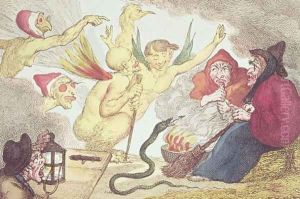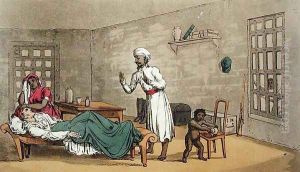





Last Visit from the Doctors Assistant, from The Grand Master, or Adventures of Qui Hi? in Hindostan. A Hudibras Poem in Eight Cantos by Quiz, by William Combe 1741-1823 published by Thomas Tegg, London, 1815
-
About Reproduction
Discover the allure of art with our faithful reproduction of "Last Visit from the Doctors Assistant, from The Grand Master, or Adventures of Qui Hi? in Hindostan. A Hudibras Poem in Eight Cantos by Quiz, by William Combe 1741-1823 published by Thomas Tegg, London, 1815", originally brought to life by the talented Thomas Rowlandson. Unlike posters or prints, our hand-painted oil painting breathes an unique sense of depth and texture into your space. Every detail, every stroke, and every texture is meticulously recreated, paying the perfect homage to Thomas Rowlandson and his artistic vision.
Owning this piece is more than just decoration - it's a statement of your refined taste in art. Let the vibrant colors and intricate details of this replica serve as a daily reminder of the beauty in our world. Elevate your decor and appreciate the richness of art with our replica of this masterpiece.
-
Painting Description
"Last Visit from the Doctor's Assistant" is an illustration from "The Grand Master, or Adventures of Qui Hi? in Hindostan. A Hudibras Poem in Eight Cantos," authored by William Combe and published in 1815 by Thomas Tegg in London. The work is notable for its satirical and humorous portrayal of British colonial life in India, and it is accompanied by illustrations from the renowned caricaturist Thomas Rowlandson.
William Combe, an English writer known for his satirical and often humorous verse, crafted "The Grand Master" as a Hudibrastic poem—a form characterized by its use of octosyllabic couplets and a mock-heroic tone. The poem follows the adventures of Qui Hi, a fictional character whose name is derived from the Anglo-Indian term "Qui Hye," meaning "Who is there?" This term was commonly used by British residents in India to summon their servants.
The illustration "Last Visit from the Doctor's Assistant" is one of several created by Thomas Rowlandson for this publication. Rowlandson, a prominent English artist and caricaturist, was celebrated for his ability to capture the absurdities and follies of contemporary society through his vivid and often exaggerated drawings. His collaboration with Combe on this project resulted in a series of illustrations that not only complement the text but also enhance its satirical impact.
In "Last Visit from the Doctor's Assistant," Rowlandson's keen eye for detail and his talent for visual storytelling are evident. The illustration likely depicts a humorous or critical moment involving medical practice or the interactions between British colonists and local inhabitants. Rowlandson's work often included exaggerated expressions and dynamic compositions, which served to amplify the comedic and critical elements of the narrative.
"The Grand Master, or Adventures of Qui Hi?" remains a significant example of early 19th-century satirical literature and art, reflecting contemporary attitudes towards British colonialism and the cultural exchanges between Britain and India. The collaboration between William Combe and Thomas Rowlandson in this work highlights the power of visual and literary satire in critiquing and entertaining audiences of their time.
-
Lead Time & Shipping
When you order this oil painting replica, it typically takes 2-3 weeks to paint. If the artwork is more complex, it might need a little more time to ensure the best quality. Once it's ready, we'll send you a photo for your approval. After you give the green light, we'll ship it to you for free.
-
Return & Refund
We believe in the quality of our hand-painted oil painting reproductions, and your satisfaction is our priority. If for any reason, you are not completely satisfied with your purchase, we offer a 45-day return policy. You can return your artwork within 45 days of receipt and receive a full refund. Please note that the artwork must be returned in the original packaging and in the same condition as it was received.

